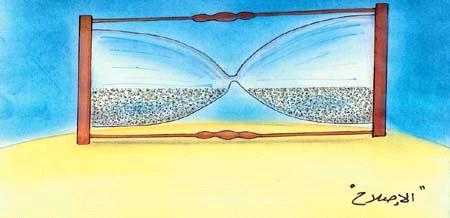-
Top Stories -
Most Popular
-
German government nudges up 2024 growth forecast
-
Oil eases as US demand concerns outweigh Middle East fears
-
Jordan Customs thwarts smuggling of 700,000 nutritional supplement capsules
-
EU, Center for Strategic Studies host “Road to Schuman” conference
-
Day 202 of Genocide: Civilians killed by Israeli forces in Gaza
-
Jordan sends 115 humanitarian aid trucks to Gaza
-
Price of 21-karat gold records JD47.4 per gramme in local market
-
Saudi Arabia’s King leaves hospital after routine medical checks
-
Israel buys 40,000 tents to evacuate civilians from Rafah
-
350 settlers storm Al-Aqsa Mosque during first hour of the raids
-
Customs department thwarts cigarette smuggling attempt
-
Number of arrivals to Jordan via low-cost, regular flights declines by 50%
-
Oil settles slightly higher as Iran plays down reported Israeli attack
-
JIACC: Customs employee detained after embezzling JD48,250 within 4 months
-
Jordanian tourism departures surge by %25.3
-
Army carries out 7 airdrops on Gaza with international participation
-
Drug dealers arrested across Jordan, one classified as dangerous
-
Warm weather almost countrywide on Saturday
-
Prince of Wales to return to duties after Kate diagnosis
-
Kuwait Ambassador: Volume of Kuwaiti investments in Jordan amount USD 20 billion
A Stable Instability Emerges in Jordan
16-10-2012 12:00 AM
Ammon News - Earlier this month, King Abdullah of Jordan dissolved parliament and called early elections, prompting large-scale protests with demonstrators calling for changes to the country’s newly enacted electoral law. In an email interview, Sean Yom, an assistant professor of political science at Temple University, discussed protests and reform in Jordan. |
- no comments
Ammon News reserves the right to delete any comment at any time, and for any reason, and will not publish any comment containing offense or deviating from the subject at hand, or to include the names of any personalities or to stir up sectarian, sectarian or racial strife, hoping to adhere to a high level of the comments as they express The extent of the progress and culture of Ammon News' visitors, noting that the comments are expressed only by the owners.
| name : * | |
| comment : * | |







 comment replay
comment replay 